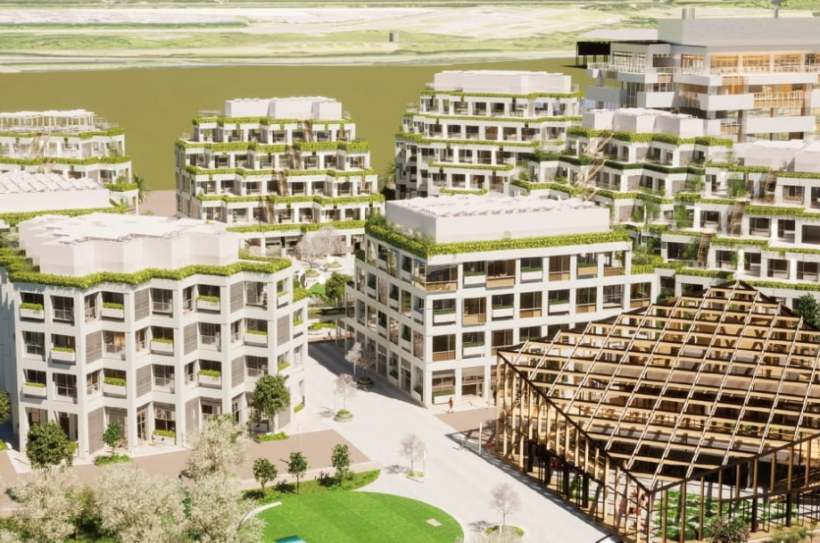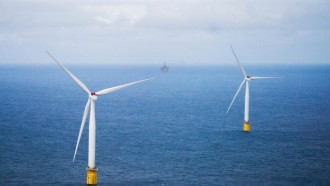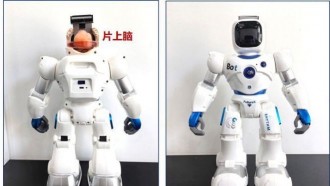Since announcing the creation of a "smart city" near Mount Fuji, Toyota is ready to welcome the first people who will live in the Woven City.
This innovative project, envisioned as a "living laboratory," is somewhat futuristic. It will test and develop cutting-edge technologies such as hydrogen power, autonomous vehicles, robotics, and artificial intelligence (AI).
A 'Living Laboratory' for Future Technologies

(Photo : Toyota)
Japan is living in the future when it announced that Toyota will welcome the first dwellers of 'Woven City,' a smart city that will house advanced technologies.
Woven City, with an estimated cost of £8 billion ($10.13 billion), is nearly complete.
According to Toyota, the first residents will move in by the end of 2024, allowing experts to gather crucial data on the city's mobility patterns.
Residents will live in eco-friendly smart homes, primarily built from wood, powered by hydrogen, and equipped with solar panels.
Toyota president Akio Toyoda emphasized the uniqueness of building a city from the ground up, providing a rare opportunity to develop future technologies.
Related Article: Hawaii Wildfires Spark Bizarre Conspiracy Theory Claiming They Are Part of Intentional Effort to Turn Maui Into AI-Run City
Smart Infrastructure: Zones for Pedestrians, Autonomous Vehicles, and Cyclists
The design of Woven City includes three distinct zones: pedestrian-only areas, roads for autonomous vehicles, and routes for active travel options such as bicycles.
To realize this vision, the Japanese automaker partnered with the renowned international architecture firm Bjarke Ingels Group (BIG), known for projects like VIA 57 West in New York and LEGO House in Denmark.
The Woven City will soon receive its first residents, described by Toyota as "guinea pig residents," to help test and refine the city's innovative features.
Covering 7,620,849 square feet (708,000 square meters), Woven City is being constructed on the former site of Toyota's Higashi-Fuji Plant, which closed four years ago, per Interesting Engineering.
Toyota aims to transform from an automobile manufacturer to a mobility company, focusing on enhancing the quality of life through efficient and enjoyable mobility solutions for people, goods, information, and energy.
Fast-Tracking Technological and Service Innovations
Woven City's comprehensive support will accelerate the development of new technologies and services.
Toyota highlights that the various support provided by Woven City will drive innovations that redefine the future of mobility and promote well-being for all. This initiative aligns with Toyota's objective to evolve from merely transporting people to uplifting and enhancing their lives through advanced mobility solutions.
A Historic Site Transformed
The Higashi-Fuji Plant, located in northeastern Japan's Tohoku region, was significantly affected by the 2011 earthquake and tsunami.
In 2020, Toyota announced the transformation of this site into Woven The carmaker wants to make it interesting in everyone's sight.
Researchers and businesses worldwide will have the opportunity to work on projects related to personal mobility, autonomous technology, AI, and robotics in this futuristic urban environment.
Honoring Sakichi Toyoda
The city is named in honor of Sakichi Toyoda, the founder of Toyota. Toyoda invented an automatic loom to simplify the weaving process for his mother, laying the foundation for the industry giant we know today. This project continues his legacy of innovation and dedication to improving lives through technology.
A New Era of Urban Living
Toyota's Woven City is one step ahead of other smart cities of this world, creating smarter, more connected urban environments.
By integrating advanced technologies and sustainable practices, Woven City serves as a model for future urban developments.
As the first residents move in and the city begins to operate, it will provide valuable insights and innovations that could transform cities around the world, setting a new standard for urban living and technological advancement.
In Europe, Greece teased plans to build a large smart city that will cover 6.2 million square meters of land. The project was dubbed "Ellinikon" and it was named after the former Ellinikon Airport near Athens.






